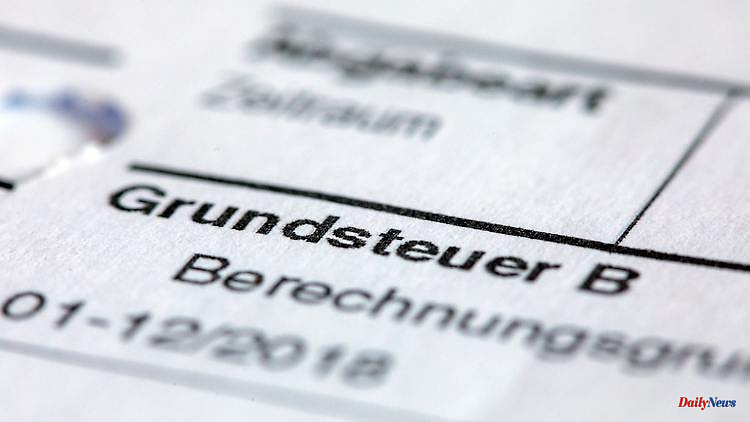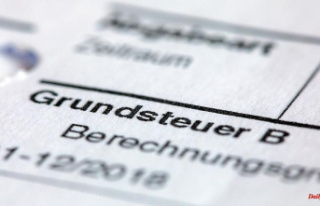If the municipal finances are bad, the property tax is often raised. This was less often the case across Germany in 2021 - with the north-east being roughly in line with the national average.
Stuttgart/Schwerin (dpa/mv) - When comparing the tax burden from property tax, Mecklenburg-Western Pomerania is in the lower ranks in a comparison of the federal states together with the other East German states. In 2021, it was an average of 117 euros per capita, after 115 euros in the previous year, according to a study by the consulting firm Ernst published on Friday
When comparing the average assessment rates for property tax B, which is levied on developed and developable properties and paid by owners or passed on to tenants, the Northeast has an average value of 393. In a comparison of the 13 non-city states, this is in the middle. Here, too, North Rhine-Westphalia (551) was at the top.
Basically, EY comes to the conclusion that the billions in surplus in the municipalities last year led to fewer increases in property tax than in previous years. Accordingly, 8.3 percent of German municipalities increased their property tax rate in 2021. The proportion was last lower in 2009. In Mecklenburg-Western Pomerania it was 7.7 percent.
How the property tax reform, in the course of which millions of homeowners are currently having to submit information to the tax office, will affect the assessment rates is still uncertain, EY said. The newly determined amounts will only apply from January 1, 2025. "For so long it is uncertain how the forthcoming property tax reform will affect the income situation of the individual municipalities, even if there is political consensus that there should not be a serious additional burden on citizens overall," emphasized EY partner Matthias Schneider.
The City and Municipality Day of Mecklenburg-West Pomerania had already dismissed fears that the municipalities wanted to use the forthcoming property tax reform to significantly increase municipal revenue. As a result of the reform, the citizens would no longer be burdened, but the tax burden would be distributed more fairly, it was said a few months ago.
The Federal Constitutional Court had declared the previously applicable property tax 2018 to be unconstitutional and thus made a new legal regulation necessary. The federal government had passed a new, value-oriented law, but allowed the states to make their own regulations via an opening clause. Unlike Hamburg, for example, Mecklenburg-Western Pomerania decided to follow the federal model for the new property tax.












